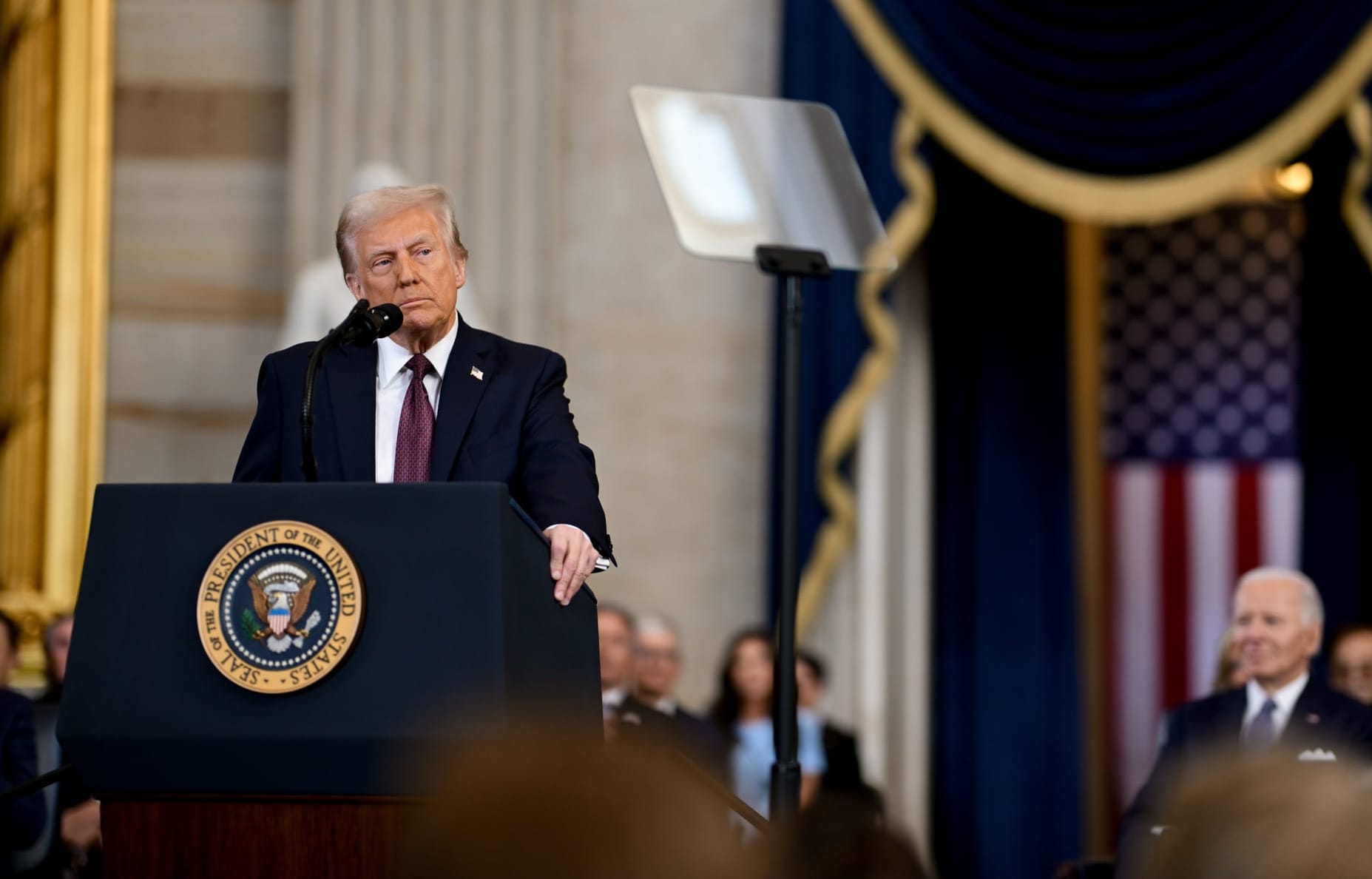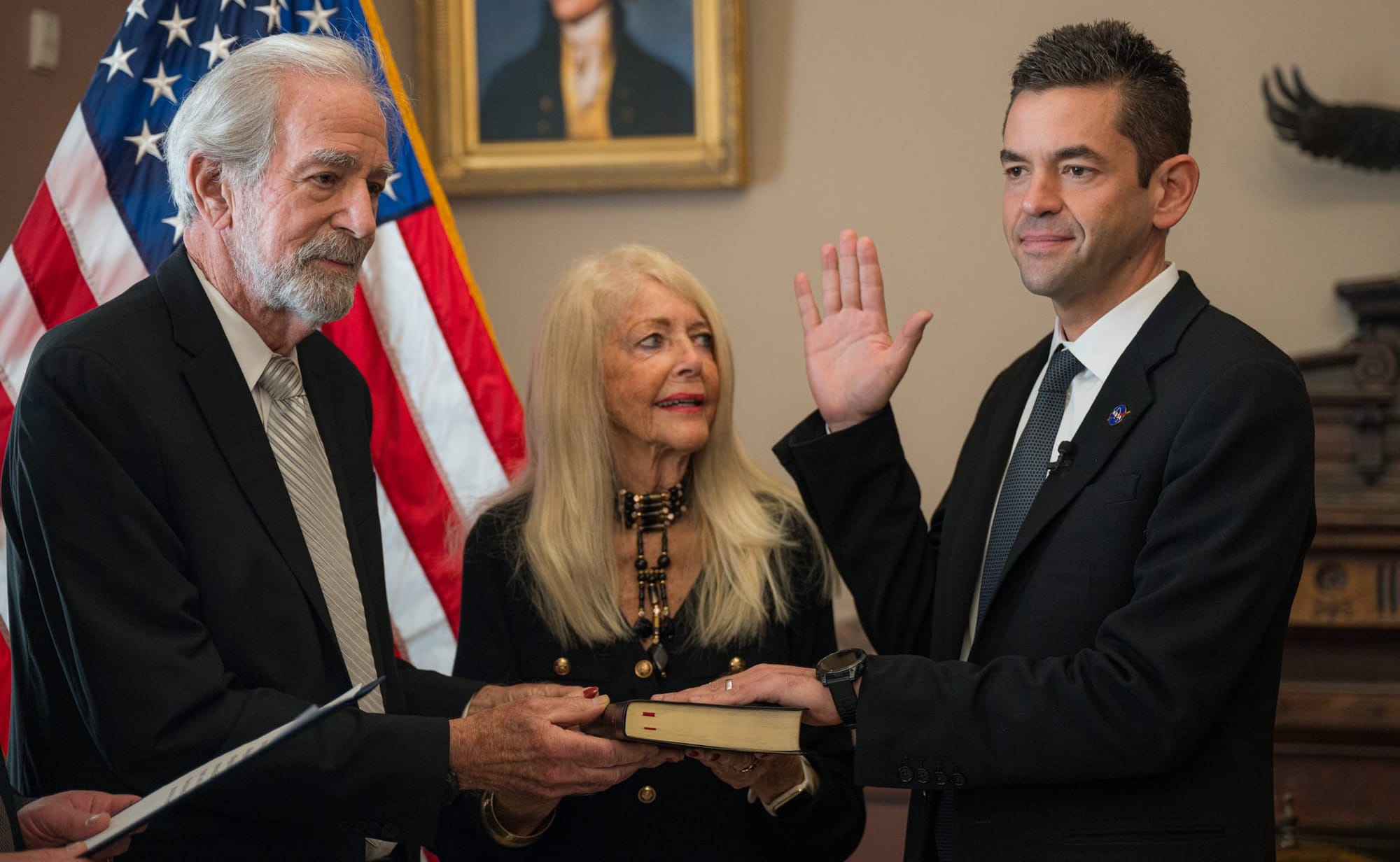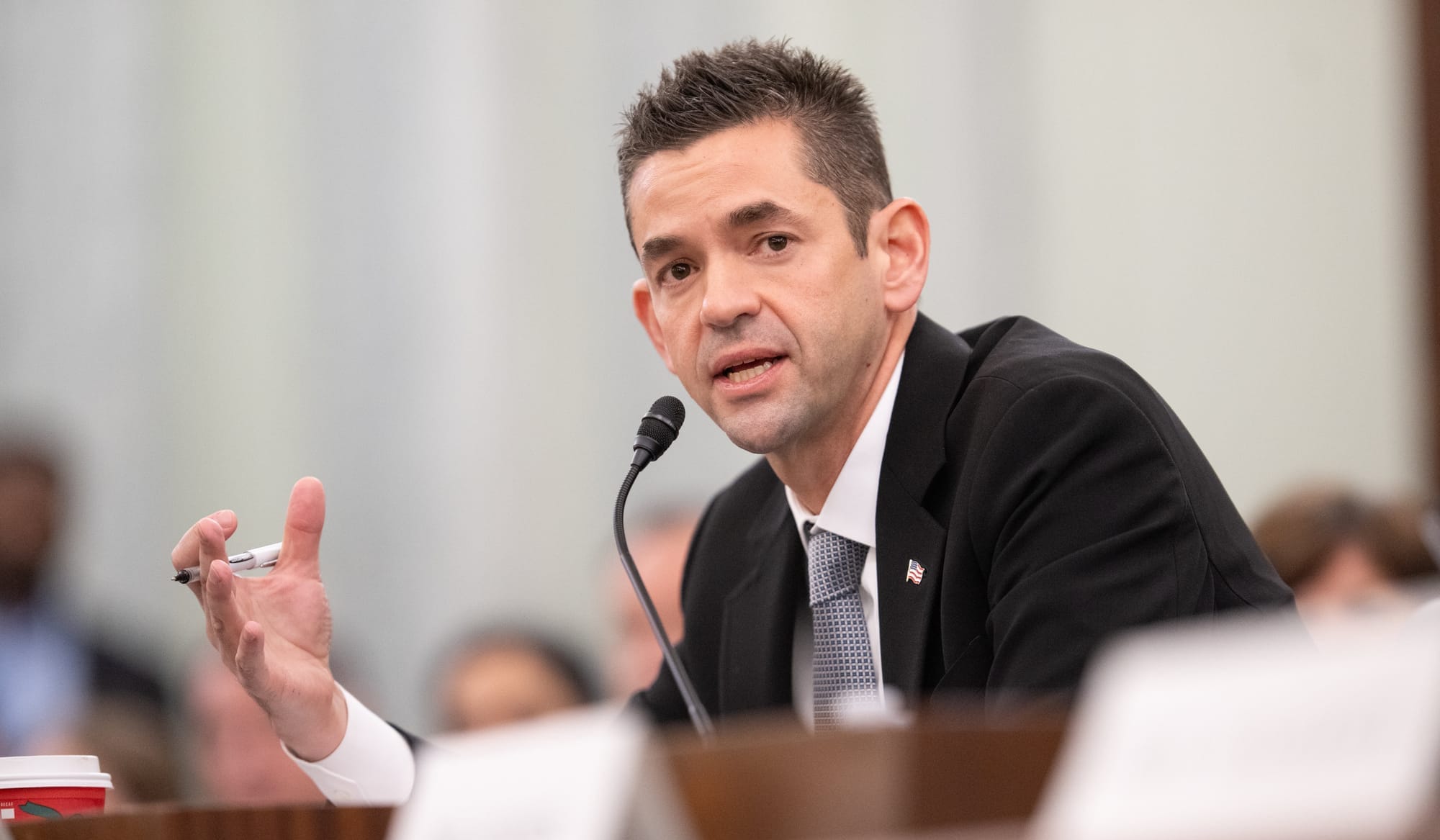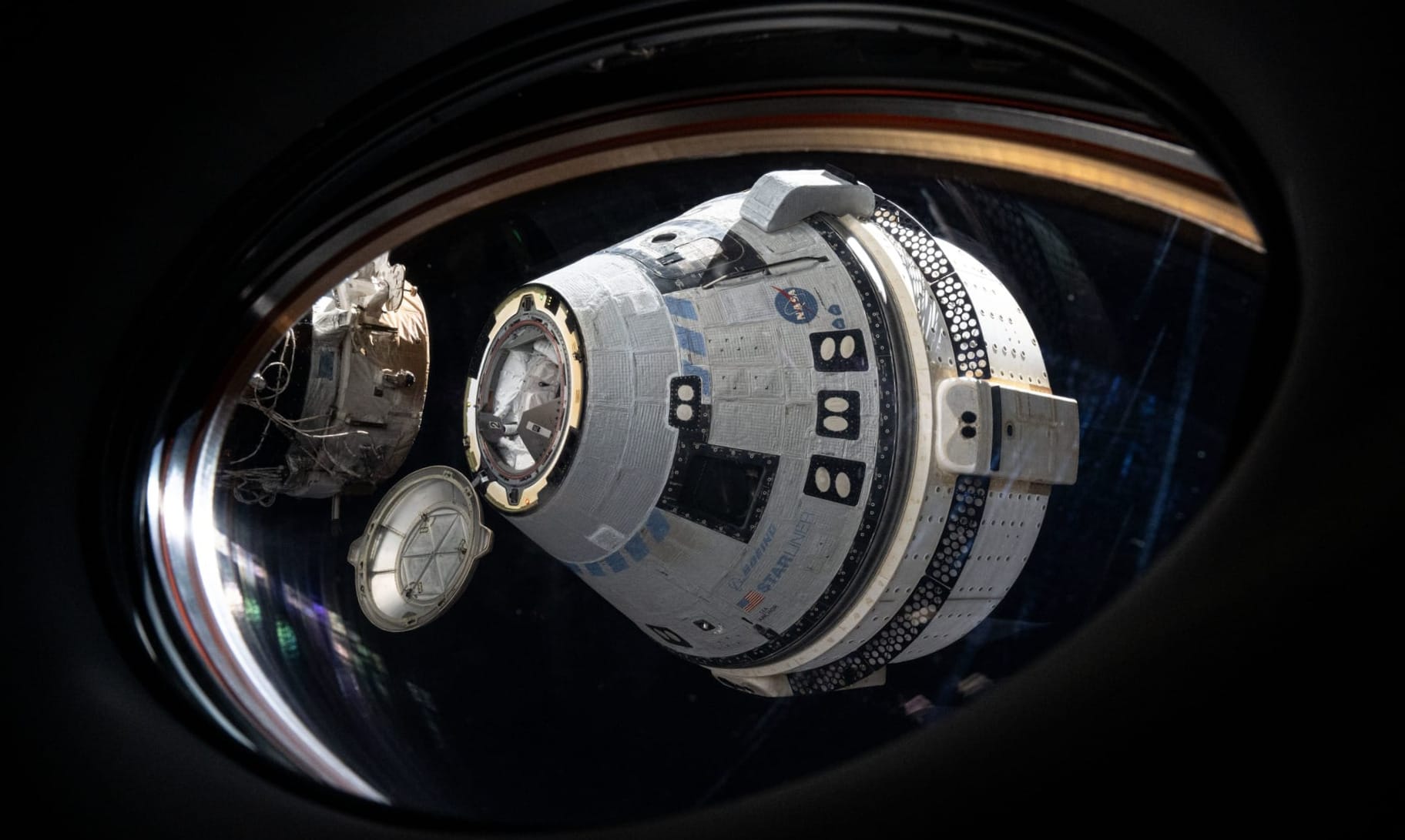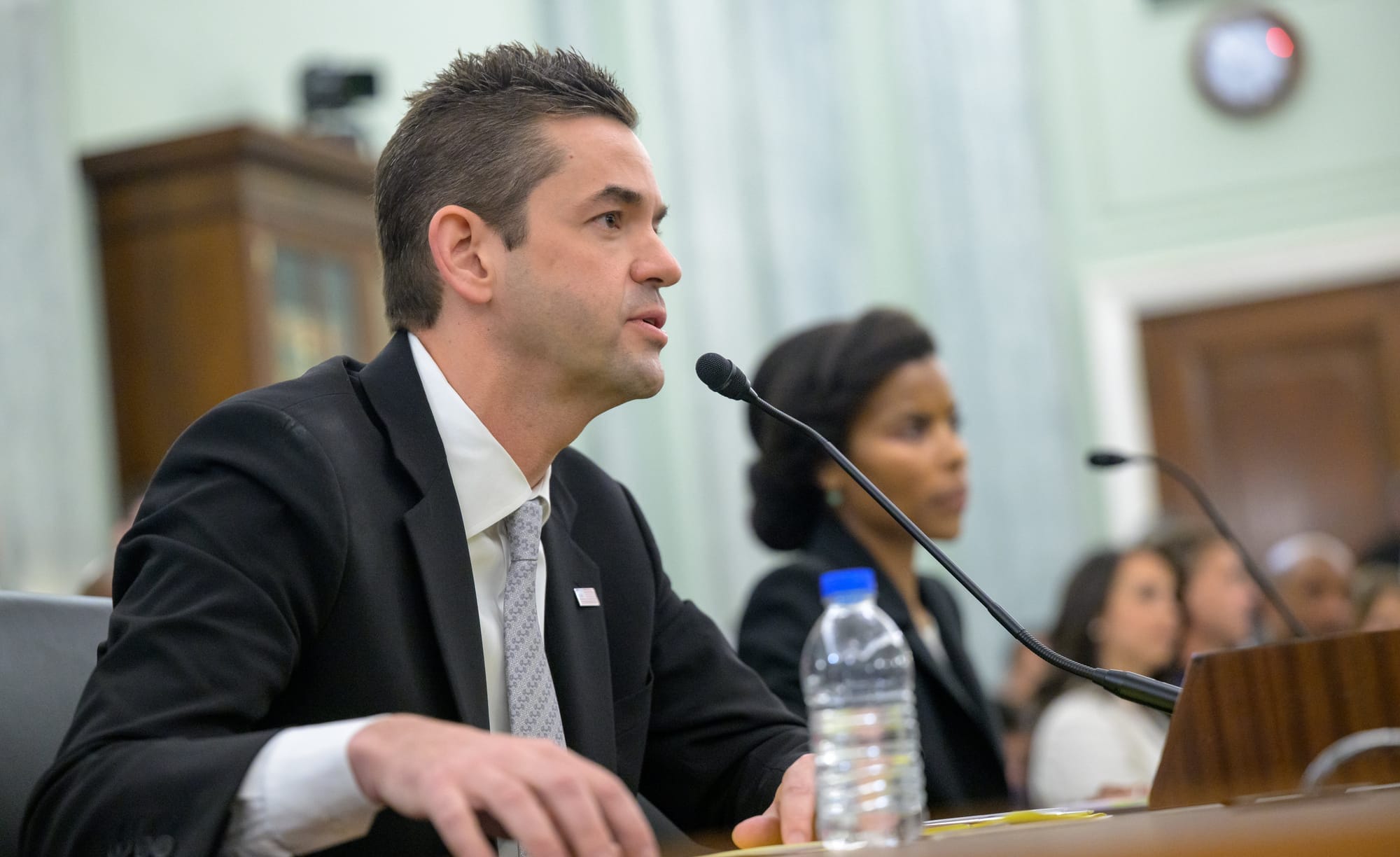Table of Contents
Donald Trump was sworn in as the 47th President of the United States of America on January 20th, becoming the first convicted felon to hold the office. After being sworn in for his second term in the United States Capitol Building in Washington D.C., Trump delivered a long inauguration speech including the following, emphasis added:
"The United States will once again consider itself a growing nation, one that increases our wealth, expands our territory, builds our cities, raises our expectations and carries our flag into new and beautiful horizons. And we will pursue our manifest destiny into the stars, launching American astronauts to plant the stars and stripes on the planet Mars." – "Americans are explorers, builders, innovators, entrepreneurs and pioneers. The spirit of the frontier is written into our hearts. The call of the next great adventure resounds from within our souls."
The speech made no mention of sending astronauts to the Moon or NASA's Artemis program, which recently delayed its first mission to the lunar surface to mid-2027.
Trump wanting boots on Mars is not a major surprise to anyone who was following the 2024 election as Elon Musk, head of SpaceX, poured at least 260 million United States Dollars into Trump's election campaign. For his massive financial support, Musk is set to head a new department, dubbed the Department of Government Efficiency, with the purpose of cutting budgets, programs, and departments nationwide, and possibly allowing Musk to overrule government agencies that regulate his companies.
Musk has long wanted to send humans to Mars to create a "backup" for human consciousness. For this aim, SpaceX has spent several years developing its Starship-Super Heavy launch vehicle. So far Starship-Super Heavy has flown seven test missions with none reaching orbit, and four major failures.
If Trump wants boots on Mars by the end of his second term, in 2028, SpaceX is likely the only company capable of doing so. As such SpaceX may become the recipient of various billion-dollar contracts to do so, strengthening the company's already near-defacto monopoly over the U.S. space program.
NASA's new Administrator
Back in December Trump made his nomination for NASA Administrator, putting forward Jared Isaacman, a billionaire commercial astronaut. Unlike previous administrators of the space agency, Isaacman has no experience as a public servant, scientist, engineer, or in academia but has been to space twice.
Isaacman's two trips to space were for the Inspiration4 and Polaris Dawn missions. Inspiration4 had Isaacman and three other commercial astronauts orbit the Earth to raise awareness and money for St. Judes Children's Research Hospital. Polaris Dawn had Isaacman perform the first commercial spacewalk, demonstrating similar spacesuit extravehicular capabilities of the Gemini program. Both of these missions used SpaceX's Crew Dragon spacecraft. Isaacman's total time in space is seven days and twenty-one hours.
Jared Isaacman has a few potential conflicts of interest ahead of becoming NASA's Administrator. He is already a repeat customer of SpaceX's human spaceflight services and has plans to book at least two more missions with his own company, Shift4, holding millions of dollars of SpaceX stock while being a partner too. Online Isaacman has been an enthusiastic supporter of Musk, questioning whose interest he will act on behalf of.
Isaacman's nomination will be handled by the U.S. Senate Commerce Committee before he takes on the position of NASA Administrator. A date for Isaacman's confirmation hearing has not yet been set.
Goodbye to Artemis?
During the election campaign, Trump ran on an "America First" philosophy relating to foreign policy. Marco Rubio, the new Secretary of State, has been ordered to follow this rhetoric with an executive order stating:
"From this day forward, the foreign policy of the United States shall champion core American interests and always put America and American citizens first." – "As soon as practicable, the Secretary of State shall issue guidance bringing the Department of State’s policies, programs, personnel, and operations in line with an America First foreign policy, which puts America and its interests first."
This rhetoric has brought into question whether the second Trump administration will remain a part of, or disband, the Artemis Accords. The Artemis Accords were created late into Trump's first term with the aim of creating an internationally agreed-upon set of principles for the peaceful utilization of space, repeating much of the UN's Outer Space Treaty while being non-binding and allowing for commercial use of celestial bodies.
Lori Garver, former NASA Deputy Administrator in the Obama administration, believes that the new administration won't stick with the accords due to its slow-to-materialize benefits. Scott Pace, executive secretary of the National Space Council from the first Trump administration, believes that the U.S. will remain in the accords until it can create a globally popular consensus on how space should be used in line with U.S. national interests, possibly replacing the Outer Space Treaty.
However, the Artemis Accords are just one part of the Artemis program. NASA's Orion capsule and its Space Launch System (SLS) are major parts of America's plan to return astronauts to the Moon, but both are billions of dollars over budget. Calls to cancel one of, or both, vehicles have been shared in recent months citing the budget overruns along with the success of commercial launch providers, mainly SpaceX. Replacing SLS and Orion would be a costly endeavor, in terms of budget and schedule, but not impossible given Musk's heavy backing of Trump.
Brewing political disaster
Donald Trump quickly got to work singing executive orders, about eighty in total, after the inauguration. Signed orders include pulling the United States from the World Health Organisation and Paris Climate Agreement, invoking the Alien Enemies Act of 1798, applying 25% tariffs on Canada and Mexico beginning February 1st, ending birthright citizenship, pardoning those involved in an attempted overthrow of U.S. democracy on January 6th 2021, and declaring a national emergency on the U.S.-Mexico border along with declaring Mexican cartels as terror organizations while hinting at deploying the military to Mexico and its border.
Elon Musk was also busy after the inauguration, speaking at the Capital One Arena in Washington D.C. to a crowd of Trump supporters, and performing a Nazi salute. Confirming what many already knew about the misogynist, racist, and neo-nazi.
um
— Aaron Rupar (@atrupar.com) 2025-01-20T19:58:05.706Z
Elon Musk performs a Nazi salute during a speech, via Aaron Rupar on Bluesky.

